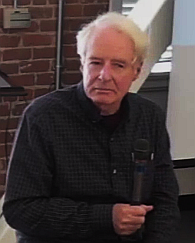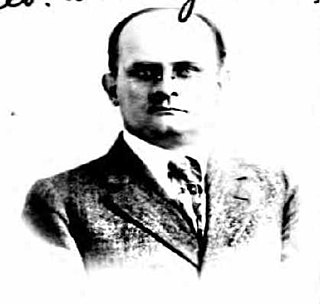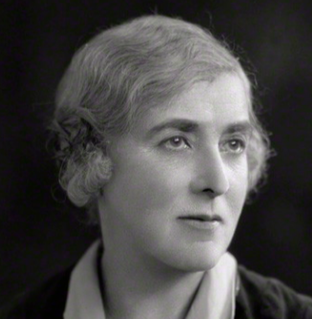Related Research Articles

Philip Edward Thomas was a British poet, essayist, and novelist. He is considered a war poet, although few of his poems deal directly with his war experiences, and his career in poetry only came after he had already been a successful writer and literary critic. In 1915, he enlisted in the British Army to fight in the First World War and was killed in action during the Battle of Arras in 1917, soon after he arrived in France.

Robert Laurence Binyon, CH was an English poet, dramatist and art scholar. Born in Lancaster, England, his parents were Frederick Binyon, a clergyman, and Mary Dockray. He studied at St Paul's School, London and at Trinity College, Oxford, where he won the Newdigate Prize for poetry in 1891. He worked for the British Museum from 1893 until his retirement in 1933. In 1904 he married the historian Cicely Margaret Powell, with whom he had three daughters, including the artist Nicolete Gray.

Sir Arthur Thomas Quiller-Couch was a Cornish writer who published using the pseudonym Q. Although a prolific novelist, he is remembered mainly for the monumental publication The Oxford Book Of English Verse 1250–1900 and for his literary criticism. He influenced many who never met him, including American writer Helene Hanff, author of 84, Charing Cross Road and its sequel, Q's Legacy. His Oxford Book of English Verse was a favourite of John Mortimer's fictional character Horace Rumpole.

Mary Mackay, known by her pseudonym Marie Corelli, was an English novelist.

Laurence Edward Alan "Laurie" Lee, MBE was an English poet, novelist and screenwriter, who was brought up in the small village of Slad in Gloucestershire.

William Tufnell Le Queux was an Anglo-French journalist and writer. He was also a diplomat, a traveller, a flying buff who officiated at the first British air meeting at Doncaster in 1909, and a wireless pioneer who broadcast music from his own station long before radio was generally available; his claims regarding his own abilities and exploits, however, were usually exaggerated. His best-known works are the anti-French and anti-Russian invasion fantasy The Great War in England in 1897 (1894) and the anti-German invasion fantasy The Invasion of 1910 (1906), the latter becoming a bestseller.

Adam Hochschild is an American author, journalist, historian and lecturer. His best-known works include King Leopold's Ghost (1998), To End All Wars: A Story of Loyalty and Rebellion, 1914–1918 (2011), Bury the Chains (2005), The Mirror at Midnight (1990), The Unquiet Ghost (1994), and Spain in Our Hearts (2016).

Gilbert Frankau was a popular British novelist. He was known also for verse, including a number of verse novels, and short stories. He was born in London into a Jewish family but was baptised as an Anglican at the age of 13. After education at Eton College, he went into the family cigar business and became Managing Director on his twenty-first birthday, his father, Arthur Frankau, having died in November 1904. A few months before his death, at sixty-eight, from lung cancer, he converted to Roman Catholicism.
Herbert Newton Casson was a Canadian journalist and author who wrote primarily about technology and business.

The 25th (Frontiersmen) Service Battalion, Royal Fusiliers was a British Army unit that served during World War I. It was raised by the Legion of Frontiersmen.

Violet Rosa Markham CH was a writer, social reformer, campaigner against women's suffrage and administrator. She grew up near Chesterfield, the daughter of Charles Markham, part owner of the profitable Markham Collieries and Markham & Co. Engineering of Chesterfield. When a friend of her late father died in 1901 Violet inherited enough money to live an independent life and devote her wealth to causes she supported, as well as to buy her own house in London. Her mother was a daughter of Sir Joseph Paxton, designer of the Crystal Palace, the centrepiece of the 1851 Great Exhibition. While traveling to South Africa in the summer of 1899, Markham met Lady Edward Cecil. The two became good friends, and together created the Victoria League in 1901.

Helen Churchill Candee was an American author, journalist, interior decorator, feminist, and geographer. Today, she is best known as a survivor of the sinking of RMS Titanic in 1912, and for her later work as a travel writer and explorer of southeast Asia.

Colonel Sir Edward Willis Duncan Ward, 1st Baronet was a British Army officer and military administrator, serving as Permanent Secretary of the War Office. He was a notable reformer of army administration, improving efficiency of mobilization, medical services and supplies.
Charles George Milnes Gaskell PC was an English lawyer and Liberal Party politician.

Theodore Wesley Koch was the Director of Northwestern University's library (1919–1941), and the Director of the University of Michigan Library (1905–1915). He also held positions at the Cornell University Library and the Library of Congress.

The Literary Society of Washington was formed in 1874 by a group of friends and associates who wished to meet regularly for "literary and artistic improvement and entertainment". For more than 140 years, this literary society has convened monthly for discourse and the reading of essays written by members. The Society consists of approximately 40 Members, plus Honorary Associates and Emeritus Members. Unlike many similar social organizations, the Literary Society has included women members since its founding. The Society has no formal building or address, but meets in member homes or other locations.

The Library War Service was established by the American Library Association in 1917 to provide library services to American soldiers training in camps and serving overseas in World War I. Between 1917 and 1920, the ALA raised $5 million from public donations, erected 36 camp libraries, distributed 7 to 10 million books and magazines, and provided library collections to more than 500 locations, including military hospitals. The Library War Service also provided books in Braille to soldiers that were blinded in battle. Library War Service librarians wore uniforms, similar to those worn by other volunteer groups like the American Red Cross, and the Library War Service provides some of the earliest examples of women participating in uniformed war service overseas. Millions of public libraries in the United States also participated in Library War Service activities, serving as collection points for books as well as places to organize and promote the War Service campaign. The efforts of the Library War Service eventually led to the creation of many modern library services, including the creation of library departments in the Army, Navy, Veterans' Association and Merchant Marine, as well as the establishment of the American Library in Paris, which remains the largest English-language lending library on the European continent today.

Helen Alexander Archdale was a Scottish feminist, suffragette and journalist. Archdale was the Sheffield branch organiser for the Women's Social and Political Union and later its prisoners' secretary in London.
Mabel Jones was a British physician and a sympathizer to the Women's Social and Political Union (WSPU).
Helen Mary Gaskell, CBE, known as May Gaskell (1853–1940) was a society hostess and philanthropist in London who established the British War Library.
References
- 1 2 3 Haslam, Sara (28 March 2018). "Reading, Trauma and Literary Caregiving 1914-1918: Helen Mary Gaskell and the War Library". Journal of Medical Humanities. doi: 10.1007/s10912-018-9513-5 . PMID 29594635.
- 1 2 3 Koch, Theodore Wesley (1919). "10: The British War Library". Books in the war; the romance of library war service. Boston, New York : Houghton Mifflin company. pp. 175-196. Retrieved 3 December 2019.CS1 maint: discouraged parameter (link)
- ↑ Dimbleby, Josceline (2012). A Profound Secret: May Gaskell, her daughter Amy, and Edward Burne-Jones. Transworld. ISBN 978-1-4464-2268-7 . Retrieved 3 December 2019.CS1 maint: discouraged parameter (link)
- ↑ Saint, Andrew (14 April 2020). "11". Survey of London: Oxford Street. Yale University Press. p. 27. ISBN 9781913107086. Archived from the original on 16 May 2020. Retrieved 3 December 2019.CS1 maint: discouraged parameter (link) Alt URL
- ↑ Ellis, Ted (1992). T.J.: A Life of Dr Thomas Jones, CH. Cardiff: University of Wales Press. pp. 440–441. ISBN 0-7083-1138-5.